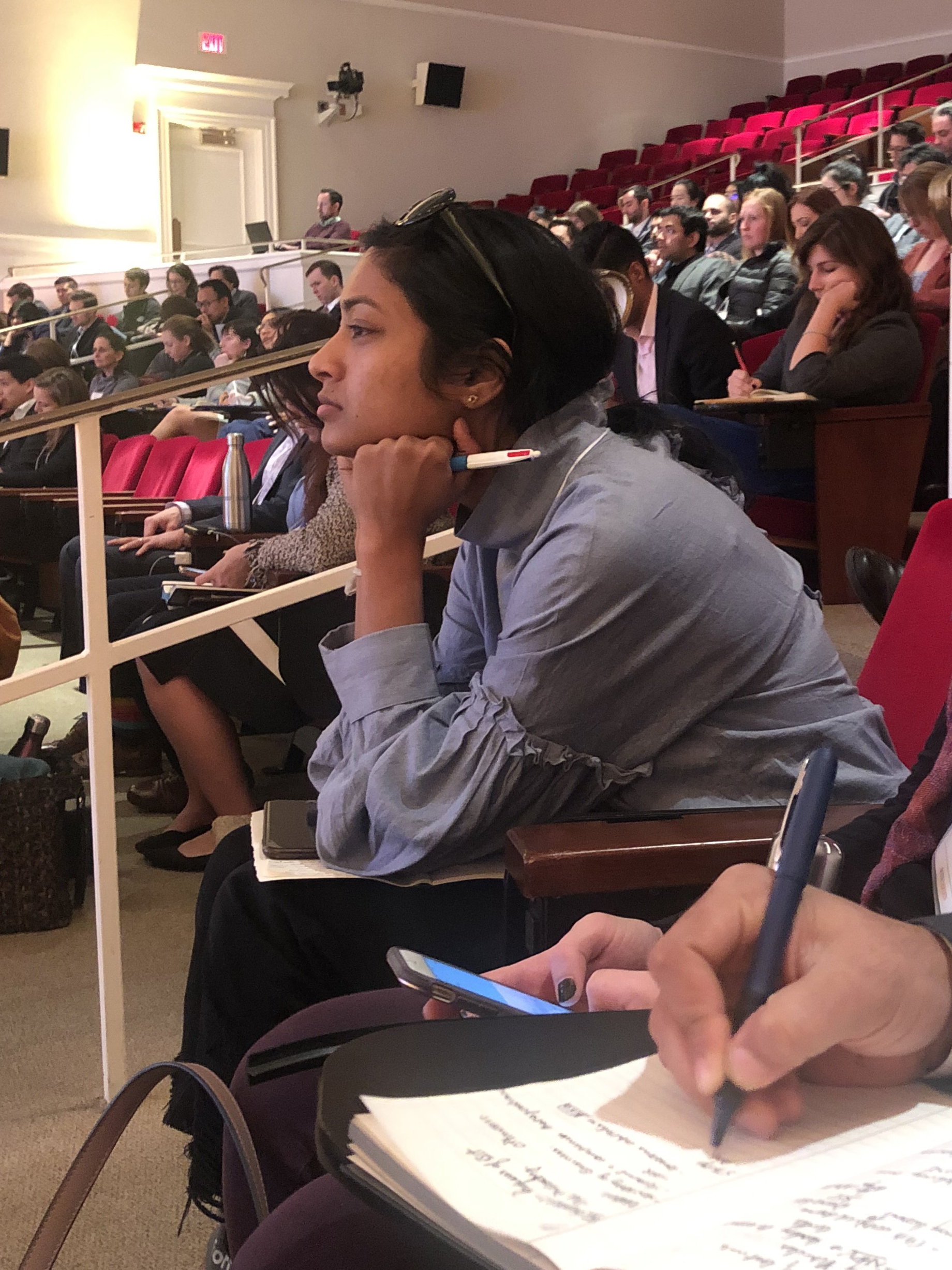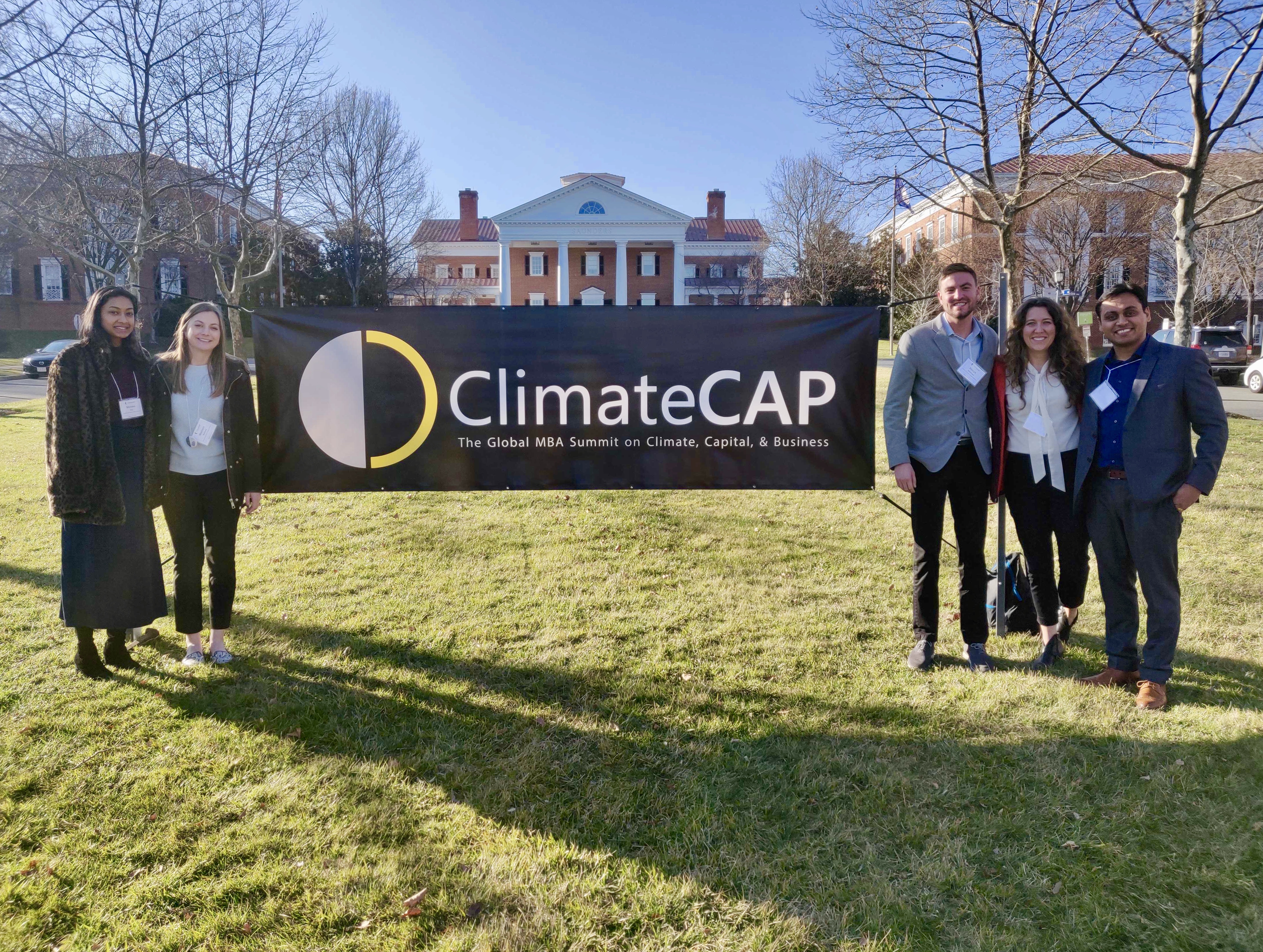From February 21-22, 2020, five MBA students from the Georgia Tech Scheller College of Business attended ClimateCAP at the University of Virginia’s Darden School of Business. The annual global MBA summit on climate, capital, and business prepares students to respond to the financial risks, investment opportunities, and leadership challenges associated with climate change. In recognition of the fact that all professionals, from brand marketers to CFOs, need to be savvy about climate change and its business impacts, the conference was geared towards all MBA students—not just those interested in sustainability-focused business roles.
The Ray C. Anderson Center for Sustainable Business (“Center”) partnered with Darden in sponsoring the conference along with other top-tier business programs including Fuqua School of Business at Duke University, Harvard Business School, Wharton, and the Yale School of Management. The Center provided small grants for conference registration and travel to Maddy Bodiford, Joe Carothers, Amanda Grupp, Shrinka Roy, and Jaspreet Singh. Grants are available to currently enrolled Scheller College students pursuing sustainability-related education and career goals.

Shrinka Roy listens intently to a ClimateCAP presentation.
When asked to describe why she wanted to attend ClimateCAP, Roy remarked, “I was particularly excited to learn about sustainability initiatives and opportunities from a high-level business perspective and to meet future and current leaders who are passionate about pushing towards a more sustainable and equitable future.”
Nearly 50 experts and practitioners from companies and nonprofits (including Facebook, Nike, Tesla, The Good Food Institute, UPS, Walmart, and others) offered insights during keynotes and panel talks. The agenda provided attendees with the opportunity to learn about a diverse set of issues related to climate change, such as engaging stakeholders, the role of the private sector in influencing public policy, effective corporate communication strategies, and innovation’s role in sustainable growth.
Of all the panels, Bodiford identified “Creating a Culture of Innovation, Influencing Supply Chains, and Offering Products that Matter” as being one of the most impactful to her personally. She mentioned that panelist Virginia Covo, global director of supply chain sustainability at AB InBev, said that in an ideal world, her position would not exist—because sustainability would be thoroughly integrated throughout business. Bodiford reflected, “Covo’s comments made me realize the importance of changing the mindset of all professionals so they understand the importance of sustainability and the serious risks of climate change to business.”
MBA students from around the world attend a ClimateCAP presentation at Darden School of Business.
Over 150 MBA students representing 24 different business schools attended the conference. Scheller College attendees agreed that they left ClimateCAP feeling hopeful that the next generation of business leaders will be able to make great strides in further embedding sustainability throughout companies and increasing profitability as a result. Carothers said, “I was surprised by the speakers’ uniformity in expressing how even MBA students can create change. The speakers said they’re increasingly seeing MBA students ask about sustainable business practices in their interviews and demand that their future employers work toward positive change.”
Grupp also left the conference feeling inspired. She said, “I repeatedly heard the message that sustainability is not only good for the environment but also important to the longevity of a business. The conference generated conversations that I will continue to reflect on in the future.”
Written by Jennifer Holley Lux
